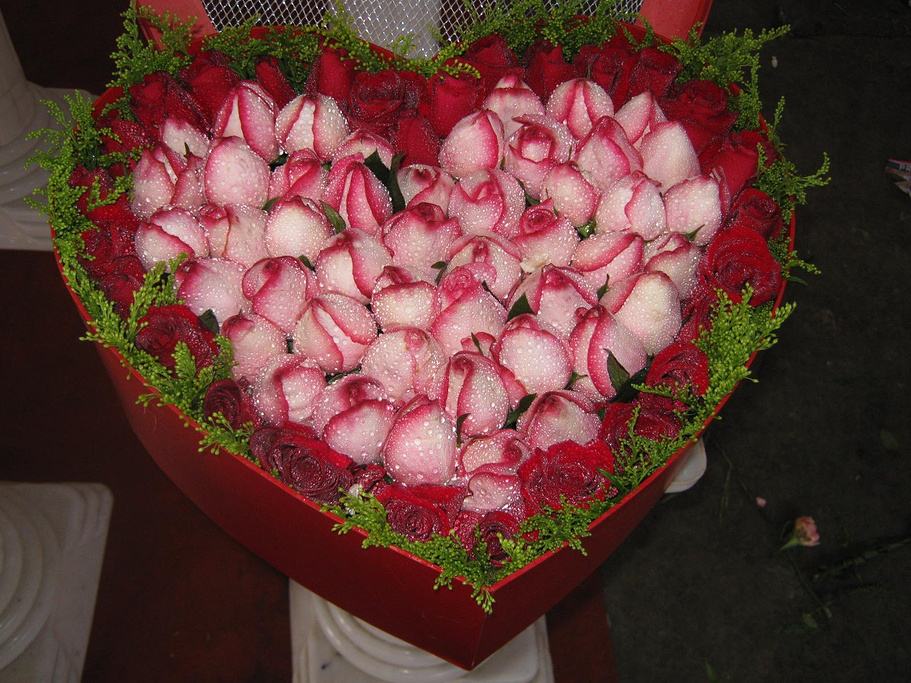This year's Valentine's Day, roses were not the most popular gift among couples and the coronavirus outbreak may be to blame. Couples couldn't go out on dates as usual but they are not, however, the most distressed people.
Flower growers in southwest China's Yunnan Province sigh in disappointment as roses rot in the fields; they have been preparing for Valentine's Day all winter.

Kunming Dounan flower market in Yunnan Province is the largest fresh flower market in Asia, supplying 70 percent of the fresh flowers in China. In the market, each red rose cost 4 yuan last year, but prices recently dropped to as low as 0.05 yuan. Over a million flowers were destroyed there on February 10.
Most flower shops around the country are closed. Flower growers chose to let the roses rot in the fields to reduce the potential losses such as picking, packaging and transportation.
China's two major e-commerce platforms, Taobao.com and JD.com, have reached out to flower growers. Roses are placed on the front page of the website to attract attention. They also provide warehouses and exclusive transportation services to ensure that roses are delivered freshly to consumers.
Yunnan Province is a good place to grow flowers thanks to its mild climate and abundant rainfall. The temperature varies little from day to night and from summer to winter. More than 100,000 people are involved in the flower industry in Yunnan Province.
In Kunming Dounan flower market, flowers are divided into four levels. The evaluation criteria are generally based on the freshness and maturity of the flower, as well as its color, appearance, and fragrance.
Only 30 percent of the flowers can be shipped to other parts of China and the world at a good price. Nearly 70 percent of the flowers are sold at a low price due to substandard quality.
Flower growers know that high-quality flowers are more valuable. However, the reality is that most of the flowers in Yunnan Province are planted by individual flower growers, and they have not received professional training in planting techniques, which makes it difficult to guarantee the quality of flowers in Yunnan.
The Netherlands produces an average of 800 to 1,000 new varieties per year, making it a dominant player in the high-end flower market. The Dutch flower industry is based on a specific scientific research system and operating mechanism. In the Netherlands, there are a lot of research institutions for flowers. Each institution has its own research direction such as scientific research, promotion, production and marketing, and they cooperate with each other.
Resulting from very few new varieties of flowers with independent intellectual property rights in Yunnan Province, it's difficult for Yunnan's flowers to shine in the international market.
In addition, because the flowers are fragile and easily damaged, the transportation of flowers is a big problem.
Although Kunming Dounan flower market is close to the airport, the capacity of the local airport is limited. It takes a long time to export flowers to areas such as Europe and East Asia since there are no direct flights.
The impact of the virus would be greatly lessened if the roses were of high quality and supported by a global transportation system. To some degree, the millions of destroyed roses in Yunnan Province sever both as a warning and a lesson.
|






7740f3b5-9ecb-438e-9052-76cb2d4bb671.jpg)

